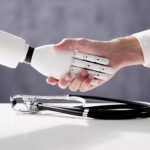 Our World
Our World  Our World
Our World  Crime
Crime 10 Dark Details of the “Bodies in the Barrels” Murders
 Animals
Animals The Animal Kingdom’s 10 Greatest Dance Moves
 Movies and TV
Movies and TV 10 Box Office Bombs That We Should Have Predicted in 2025
 History
History 10 Extreme Laws That Tried to Engineer Society
 History
History 10 “Modern” Problems with Surprising Historical Analogs
 Health
Health 10 Everyday Activities That Secretly Alter Consciousness
 History
History Top 10 Historical Disasters Caused by Someone Calling in Sick
 Animals
Animals 10 New Shark Secrets That Recently Dropped
 Movies and TV
Movies and TV 10 Forgotten Realities of Early Live Television Broadcasts
 Our World
Our World 10 Places with Geological Features That Shouldn’t Exist
 Crime
Crime 10 Dark Details of the “Bodies in the Barrels” Murders
 Animals
Animals The Animal Kingdom’s 10 Greatest Dance Moves
Who's Behind Listverse?

Jamie Frater
Head Editor
Jamie founded Listverse due to an insatiable desire to share fascinating, obscure, and bizarre facts. He has been a guest speaker on numerous national radio and television stations and is a five time published author.
More About Us Movies and TV
Movies and TV 10 Box Office Bombs That We Should Have Predicted in 2025
 History
History 10 Extreme Laws That Tried to Engineer Society
 History
History 10 “Modern” Problems with Surprising Historical Analogs
 Health
Health 10 Everyday Activities That Secretly Alter Consciousness
 History
History Top 10 Historical Disasters Caused by Someone Calling in Sick
 Animals
Animals 10 New Shark Secrets That Recently Dropped
 Movies and TV
Movies and TV 10 Forgotten Realities of Early Live Television Broadcasts
10 Biggest Misconceptions about Artificial Intelligence
Artificial intelligence (AI) is one topic that’s as fascinating as it is misunderstood. But today, we’re debunking the ten biggest misconceptions surrounding AI. From world domination to robots coming after your job, let’s figure out what myths are stopping people from enjoying artificial intelligence to the fullest.
Related: 10 Times Artificial Intelligence Displayed Amazing Abilities
10 AI is Just Like Human Intelligence
One of the biggest myths is that AI possesses the same level of intelligence and consciousness as humans when in reality, AI systems are designed to mimic specific tasks and lack human-like understanding.
Artificial Intelligence (AI) and Human Intelligence (HI) are distinct concepts often compared and contrasted. AI is based on human insights and aims to build machines that mimic human behavior and perform human-like tasks. HI, on the other hand, seeks to adapt to new situations by combining a variety of cognitive processes.
AI systems use algorithms and data to learn from their environment and improve their performance over time. In contrast, human intelligence results from a complex interplay of genes, environment, and experience.
Another significant difference between AI and human intelligence is their ability to adapt to new situations. AI systems are designed to perform specific tasks and may struggle to adapt to new situations. Humans can adapt to new situations by combining different cognitive processes.
9 AI Will Replace All Jobs
While AI has the potential to automate certain tasks, it is unlikely to replace all jobs completely. Instead, it is more likely to augment human capabilities and create new jobs.
According to a report by the World Economic Forum, AI is expected to replace 85 million jobs worldwide by 2025, but it will also create 97 million new jobs by the same year.
Another report by investment bank Goldman Sachs estimates that AI could replace the equivalent of 300 million full-time jobs, but it could also lead to a productivity boom and create new jobs. However, some experts predict that AI could replace up to 8 in 10 jobs in the next few years. The impact of AI on jobs will vary across different sectors, with some jobs being more exposed to automation than others. Jobs that require creativity, empathy, and human interaction are less likely to be replaced by AI.
8 AI Is Perfect
AI systems are not perfect and can make mistakes. They rely on the data they are trained on, so if that data is biased or incomplete, it can lead to biased or erroneous outcomes.
Several limitations and disadvantages of AI hinder its performance and effectiveness.
AI systems can only make decisions based on the data they have been trained on and may struggle to understand the context of a situation. They lack common sense and may make decisions that seem illogical or irrational to humans. These systems can be difficult to interpret and understand, making it challenging to identify errors or biases in the system.
They’re limited in their ability to be creative and think outside the box. And they lack emotions and empathy, limiting their ability to understand human behavior and emotions.
AI systems can also be easily manipulated and pose safety and ethical concerns, especially in decision-making, healthcare, transportation, and finance.
7 AI Is Only for Robots
AI is often associated with humanoid robots, but in reality, AI refers to a broader concept of computer systems that can perform tasks that would typically require human intelligence.
While robots are one application of AI, there are many others. AI can be used in various industries, including healthcare, finance, transportation, and education. AI can also automate repetitive tasks, reduce errors, and improve efficiency.
Here are some examples of AI applications in various fields:
- E-commerce: personalized shopping recommendations, fraud detection, and customer service
- Healthcare: medical image analysis, drug discovery, and personalized medicine
- Human resources: resume screening, candidate ranking, and chatbots for communication tasks
- Agriculture: crop monitoring, soil analysis, and crop harvesting
- Gaming: game development, player behavior analysis, and game testing
- Navigation: road mapping, traffic analysis, and route optimization
- Education: personalized learning, student engagement, and grading
- Telecommunication: virtual assistance, customer service, and network optimization
- Finance: fraud detection, risk assessment, and investment management
- Image recognition: facial recognition, object detection, and image classification
AI has the potential to revolutionize many industries and improve efficiency, accuracy, and decision-making.
6 AI Is All about Advanced Algorithms
While algorithms are a crucial component of AI, they are not the only aspect. AI also involves data collection, processing, and interpretation to derive meaningful insights.
AI systems use algorithms and data to learn from their environment and improve their performance over time. This process is known as machine learning, and it involves training the system with large amounts of data to identify patterns and make predictions. However, AI also involves other components, such as natural language processing, image recognition, speech recognition, and decision-making systems.
It’s helpful in various industries, including healthcare, finance, transportation, and education. While algorithms are an essential component of AI, AI is a much broader field that involves many other components and applications.
5 AI Is a Recent Development
The concept of AI has been around for decades. The seeds of modern AI were planted by philosophers who attempted to describe the process of human thinking as the mechanical manipulation of symbols. This work culminated in the invention of the programmable digital computer in the 1940s, a machine based on the abstract essence of mathematical reasoning.
The field of AI research was founded at a workshop held on the campus of Dartmouth College, USA, during the summer of 1956. Many of those who attended would become the leaders of AI research for decades. The late 1950s through the 1960s was a time of creation, from programming languages still in use to this day to books and films exploring the idea of AI. Herbert Simon projected in 1957 that AI would succeed in beating a human at chess in the next ten years, but AI then entered a first winter. Simon’s vision proved to be right 30 years later.
The time between when the phrase “artificial intelligence” was created and the 1980s was a period of both rapid growth and struggle for AI research. Since then, AI has come a long way, and its abilities have developed very rapidly. Today, AI is used in various fields and has the potential to revolutionize many industries and improve efficiency, accuracy, and decision making.
4 AI Will Take over the World
The notion that AI will become self-aware and take control of the world, as portrayed in science fiction movies, is purely speculative and far from reality. AI operates within the boundaries defined by its creators.
AI will not take over the world.
While there are concerns about the risks of AI, such as machines becoming so advanced that they could hack into essential systems and take control of vital aspects of human society, experts in the field are working hard to mitigate these risks. AI is simply a tool that can be used to improve efficiency, accuracy, and decision making in a variety of fields.
While AI has the potential to replace some jobs, it is unlikely to replace all jobs, and new jobs may also be created as a result of AI. AI lacks the creativity, emotional intelligence, and problem-solving skills of humans, which are essential to decision making.
3 AI Has Consciousness
AI systems do not possess consciousness or emotions. They operate based on predefined rules and algorithms, lacking subjective experiences.
The question of whether AI has consciousness is still a topic of debate. While some argue that AI could achieve consciousness by integrating information in the same way as humans, others argue that consciousness results from the details of our neurobiology and cannot be achieved through programming alone.
An open letter signed by dozens of academics from around the world calls on AI developers to learn more about consciousness as AI systems become more advanced. The field of artificial consciousness (AC) is related to AI and cognitive robotics. It aims to define what would have to be synthesized for consciousness to be found in an engineered artifact. However, the lack of consciousness in current robots and AI is also a topic of discussion, and a better understanding of artificial consciousness, artificial rationality, and artificial sentience is needed.
2 AI Is Only for Large Corporations
AI technologies are becoming more accessible and affordable, allowing businesses of all sizes to leverage them for various applications. It can be used by small businesses to improve efficiency, accuracy, and decision making. Here are some ways that AI can benefit small businesses:
- Cybersecurity: AI can be used to power cybersecurity and protect small businesses from cyber threats.
- Customer relationship management (CRM): AI can be used to aid in CRM and provide personalized shopping recommendations.
- Risk analysis and management: AI can identify areas where a business might be operating out of bounds, reducing the risk of fines or penalties.
- Content creation: AI-powered tools can analyze data about which types of content perform best with specific audiences and suggest topics and headlines based on that data. AI can also automatically generate content, such as product descriptions, news articles, and even photo and video content.
- Optimizing operations: AI can help small business owners understand how different variables, such as location and customer preferences, may impact their operations.
- Sales and marketing: AI can enhance customer service, strengthen marketing and sales, and drive growth.
By embracing AI, small businesses can unlock a new level of efficiency and competitiveness.
1 AI Is a Threat to Humanity
While AI presents challenges, the fear of it becoming an existential threat to humanity is largely exaggerated. Responsible development and implementation can mitigate risks effectively.
While some argue that AI poses an existential threat to humanity, others argue that the risks associated with AI can be mitigated through proper regulation and oversight.
AI has the potential to be misused for surveillance, information campaigns, and the development of lethal autonomous weapons. AI could also harm human health by exacerbating social and health inequalities, rendering human labor obsolete, and manipulating people.
Experts have called for proper regulation and oversight of AI to mitigate the risks associated with its development. This includes ensuring that AI is developed in a way that aligns with human values and ethics.
The question of whether AI poses an existential threat to humanity is a topic of debate among experts in the field. Some argue that the risks associated with AI can be mitigated through proper regulation and oversight, while others argue that the risks are too great and that AI should be reined in until it can be regulated.








